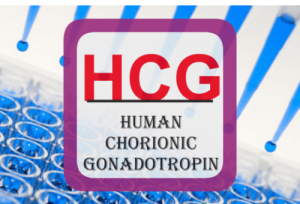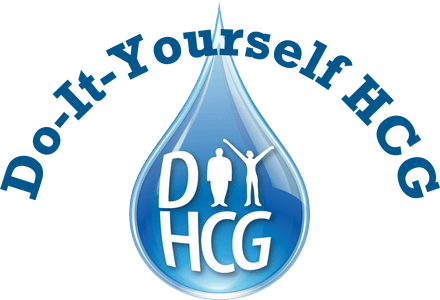What is HCG?
 HCG stands for "Human Chorionic Gonadotropin", which is a hormone that is naturally created, present, and required for each successful pregnancy. HCG is and has been commonly used to treat infertility in both women and men for decades. During pregnancy, HCG is produced in very large quantities.
HCG stands for "Human Chorionic Gonadotropin", which is a hormone that is naturally created, present, and required for each successful pregnancy. HCG is and has been commonly used to treat infertility in both women and men for decades. During pregnancy, HCG is produced in very large quantities.
Due to the extended use of HCG with both men and women over the last few decades and Dr. Simeons work presented in Pounds and Inches: A New Approach to Obesity, the HCG Protocol is considered safe and effective for both men and women.
HCG for Weight Loss
Dr. Albert T.W. Simeons discovered that small, regularly administered doses of HCG cause the body to release abnormal fat when it's taken along with a detailed 500-calorie daily diet. Because the body is releasing between 1,500 and 4,000 calories' worth of fat into the bloodstream during the HCG Diet, there's little hunger involved in the protocol, unlike other calorie-restricted diets.
The FDA and HCG
The Food and Drug Administration has not approved HCG for weight loss, because on its own, the hormone won't cause you to lose weight. But when it's used with the specific, prescribed diet, it can lead to a loss of up to 20-30 pounds during a single round, which lasts between 23 and 40 days.
Is HCG Safe?
Dr. Simeons, an endocrinologist, developed the HCG protocol in the 1950s, and since then, it has helped countless people not only lose weight, but is also thought to cause physiological changes that help re-establish a normal weight so that you're far less likely to gain it back once you are no longer following the low calorie diet plan.
Dr. Simeons considered the HCG protocol safe and effective, and we agree. During the protocol, you'll be taking a very low dose of HCG compared to the one million or so units produced by the body during pregnancy.
Three Types of HCG
There are three main types of HCG that are used for the HCG protocol: Homeopathic HCG, HCG injections, and mixed sublingual HCG. It's also available in creams, troches, and sprays, but the aforementioned types have been the most popular in recent years and are considered highly reliable and effective for the HCG protocol.
Homeopathic HCG is generally made in a U.S. laboratory and is taken sublingually, or under the tongue. Homeopathic HCG is less expensive than the other types, and it doesn't require any mixing or preparation. At one point, you could buy homeopathic HCG over the counter at many health food outlets, but its availability has become more limited as the FDA is not a fan. Many people prefer homeopathic HCG because it doesn’t require injections, it has been reported to have less hair loss (a possible side effect), and it doesn't require refrigeration, making it easy to travel with.
HCG injections are generally made from prescription HCG mixed with bacteriostatic water in a sterile environment. It generally costs significantly more than the homeopathic HCG, and you'll also need to stock up on syringes and alcohol pads. You'll need a prescription for HCG injections. When you visit your doctor to try to obtain a prescription for HCG, it's a good idea to bring along a copy of Dr. Simeons’ manuscript, Pounds and Inches: A New Approach to Obesity in case your physician is unfamiliar with the protocol. While you can prepare the HCG injection mixture yourself, you may feel more comfortable having it professionally mixed.
Mixed sublingual HCG is a combination of HCG and vitamin B12 that's taken sublingually. It costs about the same as the HCG injections if you obtain a prescription from a physician, but without the added cost of syringes and alcohol pads. You'll need a prescription for mixed sublingual HCG as well, and you'll need to mix it carefully to ensure accurate dosing.
Whichever type you choose, make sure you've read the protocol and understand the exact dosages required for optimum weight loss, as well as, a complete understanding of the HCG Diet plan covering food, drinks, and products — both those that can be used and those that should not be used during the low calorie phase of the diet plan.
